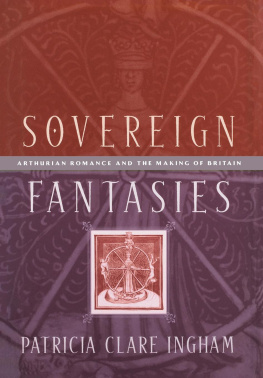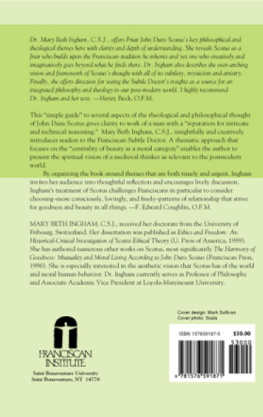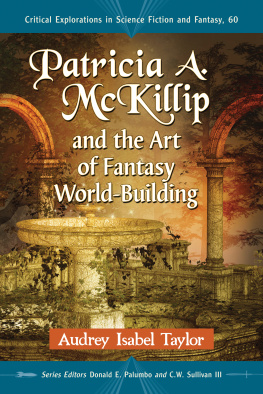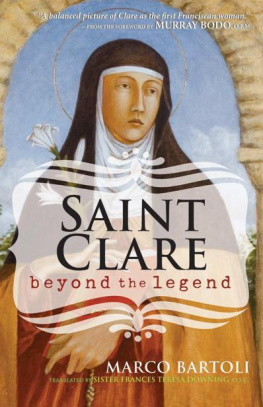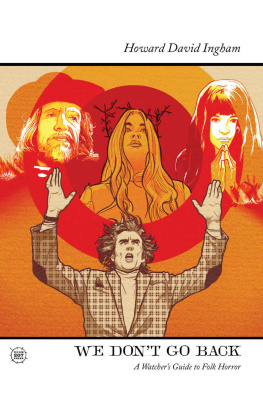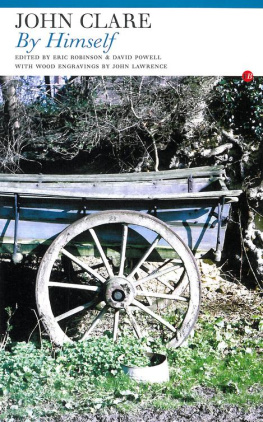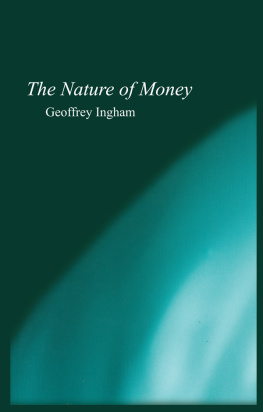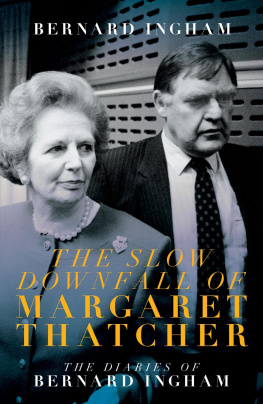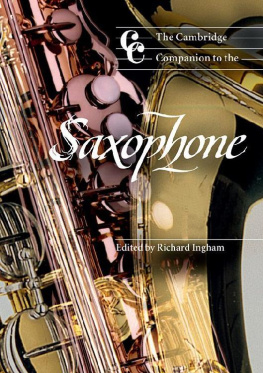Ingham Patricia Clare - Sovereign Fantasies
Here you can read online Ingham Patricia Clare - Sovereign Fantasies full text of the book (entire story) in english for free. Download pdf and epub, get meaning, cover and reviews about this ebook. year: 2019, publisher: University of Pennsylvania Press, genre: Romance novel. Description of the work, (preface) as well as reviews are available. Best literature library LitArk.com created for fans of good reading and offers a wide selection of genres:
Romance novel
Science fiction
Adventure
Detective
Science
History
Home and family
Prose
Art
Politics
Computer
Non-fiction
Religion
Business
Children
Humor
Choose a favorite category and find really read worthwhile books. Enjoy immersion in the world of imagination, feel the emotions of the characters or learn something new for yourself, make an fascinating discovery.
- Book:Sovereign Fantasies
- Author:
- Publisher:University of Pennsylvania Press
- Genre:
- Year:2019
- Rating:3 / 5
- Favourites:Add to favourites
- Your mark:
- 60
- 1
- 2
- 3
- 4
- 5
Sovereign Fantasies: summary, description and annotation
We offer to read an annotation, description, summary or preface (depends on what the author of the book "Sovereign Fantasies" wrote himself). If you haven't found the necessary information about the book — write in the comments, we will try to find it.
Sovereign Fantasies — read online for free the complete book (whole text) full work
Below is the text of the book, divided by pages. System saving the place of the last page read, allows you to conveniently read the book "Sovereign Fantasies" online for free, without having to search again every time where you left off. Put a bookmark, and you can go to the page where you finished reading at any time.
Font size:
Interval:
Bookmark:

Sovereign Fantasies
THE MIDDLE AGES SERIES
Ruth Mazo Karras, Series Editor
Edward Peters, Founding Editor
A complete list of books in the series
is available from the publisher.
Sovereign Fantasies
ARTHURIAN ROMANCE AND
THE MAKING OF BRITAIN
Patricia Clare Ingham

UNIVERSITY OF PENNSYLVANIA PRESS Philadelphia
Copyright 2001 University of Pennsylvania Press
All rights reserved
Printed on acid-free paper
10 9 8 7 6 5 4 3 2 1
Published by
University of Pennsylvania Press
Philadelphia, Pennsylvania 19104
Library of Congress Cataloging-in-Publication Data
Ingham, Patricia.
Sovereign fantasies : Arthurian romance and the making of Britain / Patricia Clare Ingham.
p. cm. (Middle Ages series)
Includes bibliographical references (p. ) and index.
ISBN 0-8122-3600-9 (cloth : alk. paper)
1. English literatureMiddle English, 11001500History and criticism. 2. Arthurian romancesHistory and criticism. 3. Literature and historyGreat BritainHistoryTo 1500. 4. Historical fiction, EnglishHistory and criticism. 5. National characteristics, British, in literature. 6. Romances, EnglishHistory and criticism. 7. Kings and rulers in literature. 8. Britons in literature. I. Title. II. Series.
PR328 .I54 2001
809'.93351dc21 | 00-066966 |
In memory of my parents
Dolores Gormley Ingham and Charles Grant Ingham
And for
Louise Aranye Fradenburg
Contents
Introduction
A HISTORY without the imagination, wrote Jacques Le Goff, is a mutilated, disembodied history (5). Imagination, Le Goff implies, has the power to repair historical fragments, turning mutilated details into a coherent whole. Le Goffs striking image of a disembodied history without imagination links materiality with the imaginative faculty. Historys special claim to the material and embodied comes not merely from facts about the past, but from what an imagination does with those facts. Le Goff thus rearranges what has been until recently the standard opposition between history (the Real, the material, and the embodied) and fiction (the imagined, the literary, and the textual). Our histories need imagination, Le Goff and many medievalists since insist, at least in part because, as Gabrielle Spiegel has suggested, imaginary dreams have the power to motivate human behavior (86). Such work has helped us see that fantasy and history have had a long acquaintance, and not simply because medieval writers about the past cared less for verisimilitude than did their modern or early modern counterparts. Indeed, as the 1839 text of the Middle English version of the Travels of Sir John Mandeville suggests, the imaginative faculty can assist in the very real process of creating empires. Imperial governments use, as that text puts it, [a]lle here lust and alle here Ymaginacioun for to putten alle Londes undre hire subjeccioun [all their desire and all their imagination so as to put all lands under their control] (251).
Le Goff emphasizes the unifying and synthetic power of the imagination; imagination, in this view, repairs mutilation, places pieces together, crafts wholeness out of parts. The remarks attributed to Mandeville, in contrast, emphasize the role of the imagination in processes of conquest, annexation, and subjugation, thus hinting at the sinister side of imaginary unifications. Unity is an imaginary quality valuable to imperial governments and to processes of colonization. And yet processes of conquest, annexation, and subjugation can be said to unify only if we take a conquerors perspective. As the history of the Troubles in Northern Ireland suggests, the value of unity is a matter of perspective: what from one view constitutes a longed-for unification, can also be experienced as a painful separation, a destructive fragmentation. Analyses of the imaginary syntheses of medieval history have had little to say about the colonizing uses of imagination and fantasy; medievalists have not examined as frequently as we might what traumas, losses, imaginary fragments, or contradictions fuel historic medieval legends. We have, as a result, often had less to say about the alternative histories, alternative imaginings also legible in medieval texts; we are often silent about the other dreams and desires sacrificed, often forcibly, to traumatic imperial, or national, unities.
This study takes seriously the role of imagination in making (and contesting) notions of union in late medieval Britain. Sovereign Fantasies examines romance narratives of Arthur from the late fourteenth and fifteenth centuries in the context of changing political and cultural identities in late medieval Britain. I argue that late Middle English Arthurian romance offers a fantasy of insular union, an imagined community of British sovereignty. Stories of Arthur, King of Britain, rework notions of insular British unity because Arthurian sovereignty can be used to designate an indigenous tradition (based upon its Welsh associations). As native folk hero, Arthur offers a royal legend grown on British soil. Yet tales of Arthur also point to the complications of community, the disaffections and aggressions that inhabit, and threaten, union. They thus offer a view of both how unions are crafted and how they break apart. In this way Arthurs court becomes a fiction of historic British sovereignty useful for competing accounts of British identity. Arthurs story can serve both those who wish to praise union and recommend centralization and those who wish to indict centralized power. The ambiguities of Arthurian geographyis his court at Caerlion or Carlisle, at Winchester or Camelot?allude to historic struggles over the geography of British union, particularly to relations between central England and the regions of its so-called Celtic Fringe. Tales of Arthur encode utopian hopes for communitarian wholeness; yet they also poignantly narrate the impossibilities, the aggressions, and the traumas, of British insular community.
The question of Arthurs indigenous British roots is, of course, a complicated one. Welsh fantasies of Arthurian sovereignty, for example, remind us that the colonized cultures of insular Britain had utopian dreams of their own, dreams pertinent to Arthurian traditions. While focused on Middle English texts from the later period, my study attempts to take seriously such dreams and the political and cultural oppositions they signify. Middle English romances of King Arthur are important in this regard for two reasons: first, they emerge with force at times of insular instability and change; second, they occupy (even in the twelfth century) a shared border between cultural identities of historic importance to British sovereignty: English, Welsh, and French. Because of these specific attributes, Middle English Arthurian traditions offer an important site for viewing the intersections and dialogues between oppositional discourses and dominant cultural modes. These texts offer access to the shared dreamings and political contestations between England and Wales in the late medieval period. The historic legend of Arthurs rule over a lost insular wholeness (what Geoffrey of Monmouth terms the totius insulae of Britain) is important both to Welsh (and Scots) claims as rightful heirs of Britains crown and to the ambitions of late medieval English kings in annexing Wales and Scotland. Fantasies of a pastoral, ancient, and united Britain ruled by sovereigns such as Arthur were at play differently, at different historical moments, and deployed by different groups. At stake both in the wide circulation of Arthurian traditions in the late Middle Ages, and in the difficulty in recognizing some of those stories as history, are contestations over the ownership of a British imaginary past, indeed of Britain itself.
Font size:
Interval:
Bookmark:
Similar books «Sovereign Fantasies»
Look at similar books to Sovereign Fantasies. We have selected literature similar in name and meaning in the hope of providing readers with more options to find new, interesting, not yet read works.
Discussion, reviews of the book Sovereign Fantasies and just readers' own opinions. Leave your comments, write what you think about the work, its meaning or the main characters. Specify what exactly you liked and what you didn't like, and why you think so.

